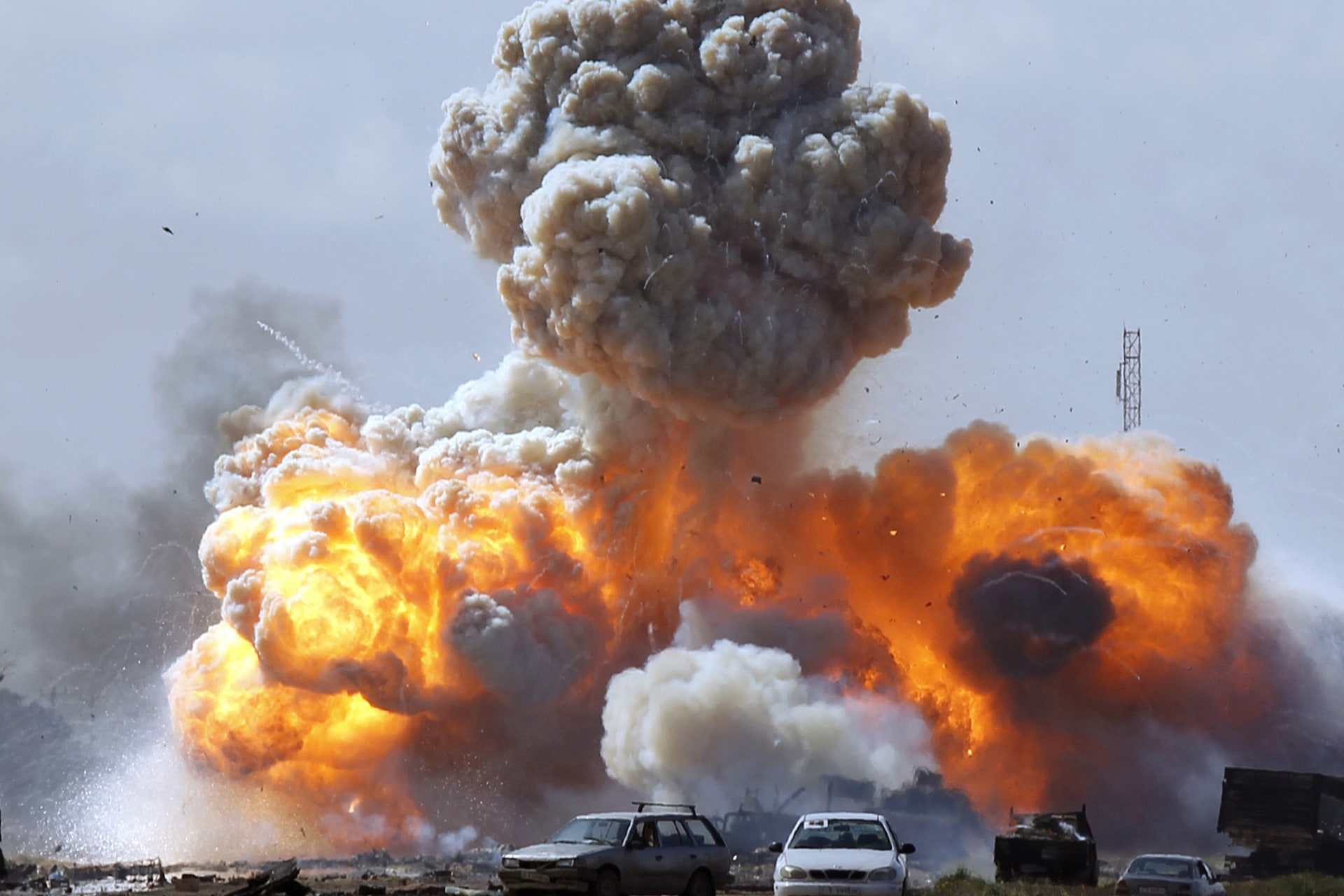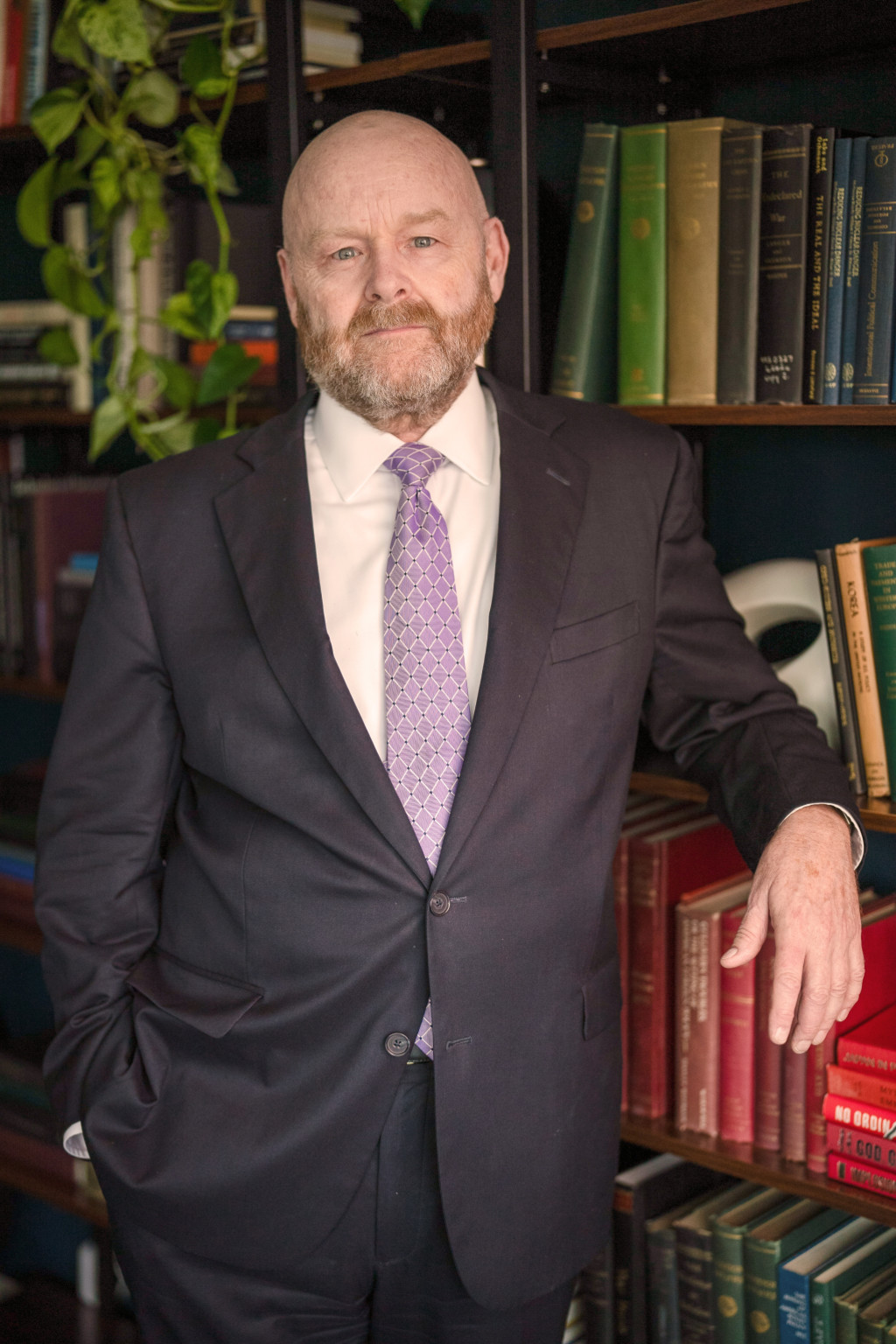Is Operation Odyssey Dawn Constitutional? Part II

By experts and staff
- Published
Experts
![]() By James M. LindsayMary and David Boies Distinguished Senior Fellow in U.S. Foreign Policy
By James M. LindsayMary and David Boies Distinguished Senior Fellow in U.S. Foreign Policy
Last week I wrote a post arguing that President Obama’s decision to launch Operation Odyssey Dawn conflicted with the Framers’ conception of the exercise of the war power. The men who wrote the Constitution rejected the idea that a president could initiate hostilities on his own. Indeed, they thought they were creating a system that would prevent him from doing so.
I have since been reminded that Senator Obama staked out a position on the war power that was more in keeping with the views of the Framers than President Obama has. Back in 2007 he told the Boston Globe:
The president does not have power under the Constitution to unilaterally authorize a military attack in a situation that does not involve stopping an actual or imminent threat to the nation.
Obama isn’t the first president to change his reading of the Constitution once he moved into the White House. (Perhaps as scholars of bureaucratic politics like to say, where you stand really does depend on where you sit.) He won’t be the last. But to focus on Obama’s flip-flop is to miss a larger point: he did not make up his claim that presidents have an independent war-making authority out of whole cloth. There is a long-standing and serious legal argument that presidents don’t need to go to Congress before initiating hostilities.
Actually, there are a lot of arguments. Lawyers are smart people who like to write, whether for judges or law reviews. That combination guarantees a torrent of ideas on the legality of presidential war-making, some of which are rooted in statute (that is, laws Congress has passed) rather than the Constitution. But I am writing a blog post and not a book, and I’m interested in the constitutional rather than the statutory sources of presidential authority, so I’ll focus on two main lines of constitutional argument. Let’s call them the “he’s-always-had-it” school and the “he’s-earned-it” school.
The “he’s-always-had-it” school of thought argues that the president has always had an independent war-making authority and that’s the way the Framers wanted it. This is the position that John Yoo has built a career on and that David Rivkin and Lee Casey frequently lay out in op-eds.
The “he’s-always-had-it” school generally construes the Constitution’s “to declare war” clause very narrowly, arguing that hostilities that don’t reach the level of a declared war don’t require congressional authorization or approval. As Rivkin and Casey wrote in the Washington Post last week:
Nations could, and did, use force without declaring war on their opponents. As a matter of international law, a declaration of war had much more to do with the technical legal regime governing hostilities — dissolving treaties between the belligerent powers and permitting the lawful seizure of public or private enemy property, for example — than with the right to use force in the first place.
But the “he’s-always-had-it” argument is hard to sustain without doing violence to the historical record. As I noted in last week’s post, there’s ample evidence that the Framers and their immediate successor generations did not construe the “to declare war” clause narrowly and that they understood quite well that warfare could be limited or all-out. James Buchanan may have been a terrible president, but he summed up the nineteenth century view of the war power when he wrote that it belonged to Congress “without limitation” and extended to ”every species of hostility, however confined or limited.”
Because the historical record offers so much to rebut claims that the Framers wanted presidents to have the power to initiate hostilities on their own, most defenses of presidential war-making authority make a different case, namely, that presidents earned that power because they have often exercised it over the past two-plus centuries.
Jack Goldsmith, a terrific legal scholar at Harvard, summarized the he’s-earned-it argument in a recent post:
That practice confirms that the president, under his commander-in-chief and other executive powers, has very broad discretion to use U.S. military force in the absence of congressional authorization. Presidents have done this, in military actions large and small, over 100 times, since the beginning of the republic.
You might wonder how something that is unconstitutional to begin with can become constitutional through repetition. As critics of the idea love to point out, by that logic Jim Crow was constitutional.
(In fairness to Goldsmith and others in the he’s-earned-it school, they generally do not grant the initial proposition that the Framers’ intent was clear. They instead typically stipulate that the text of the Constitution and early historical practice is “indeterminate.”)
But Goldsmith and others in the he’s-earned-it-camp argue that repetition can create constitutional authority for good reason: the Supreme Court has put its stamp of approval on the idea. The justice who typically gets quoted in this instance is Felix Frankfurter. He wrote in a concurring opinion in Youngstown Sheet & Tube Co. v. Sawyer (1952), which is also known as the Steel Seizure case, that a:
systematic, unbroken, executive practice, long pursued to the knowledge of the Congress and never before questioned … may be treated as a gloss on ’Executive Power’ vested in the President by § 1 of Art. II.
This was not just an idle thought that Frankfurter tossed off. In a case decided thirty-seven years earlier, United States v. Midwest Oil Co., the Court ruled that while past practice did not by itself create a new constitutional power, a:
long-continued practice, known to and acquiesced in by Congress, would raise a presumption that the [presidential action in question] had been [taken] in pursuance of its consent.
Justice William Rehnquist cited both cases approvingly in Dames & Moore v. Reagan (1986). In all, the idea that practice creates power is on solid legal legs.
So has Goldsmith won the argument? Well, not quite. Frankfurter and Rehnquist posed a standard: a presidential action gains the gloss of constitutionality only if it is a “systematic, unbroken, executive practice, long pursued to the knowledge of Congress and never before questioned.”
The question is then, does the history of presidential war-making meet the Frankfurter-Rehnquist test? Has it been systematic, unbroken, done openly, and never before questioned? Goldsmith certainly thinks so. He has more than a hundred cases dating back to “the beginning of the republic.” My colleague, Matt Waxman, agrees. He wrote just this week that “historically, the president has asserted broad authority to use force without congressional authorization.”
But to quote one of my favorite philosophers, Lee Corso of ESPN’s College Game Day, “Not so fast my friend.” The historical record looks a bit different than Goldsmith and Waxman suggest. The next post in this series will look at just how different.
Other posts in this series:
